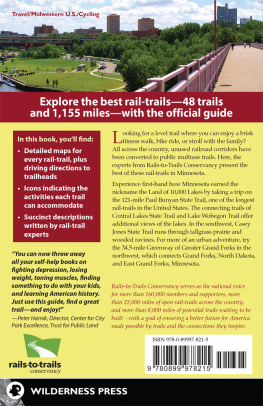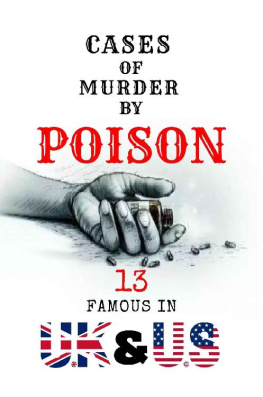Vikas Khatri - World Famous Trials
Here you can read online Vikas Khatri - World Famous Trials full text of the book (entire story) in english for free. Download pdf and epub, get meaning, cover and reviews about this ebook. year: 2011, publisher: ePub Direct;Pustak Mahal, genre: Detective and thriller. Description of the work, (preface) as well as reviews are available. Best literature library LitArk.com created for fans of good reading and offers a wide selection of genres:
Romance novel
Science fiction
Adventure
Detective
Science
History
Home and family
Prose
Art
Politics
Computer
Non-fiction
Religion
Business
Children
Humor
Choose a favorite category and find really read worthwhile books. Enjoy immersion in the world of imagination, feel the emotions of the characters or learn something new for yourself, make an fascinating discovery.

- Book:World Famous Trials
- Author:
- Publisher:ePub Direct;Pustak Mahal
- Genre:
- Year:2011
- Rating:3 / 5
- Favourites:Add to favourites
- Your mark:
- 60
- 1
- 2
- 3
- 4
- 5
World Famous Trials: summary, description and annotation
We offer to read an annotation, description, summary or preface (depends on what the author of the book "World Famous Trials" wrote himself). If you haven't found the necessary information about the book — write in the comments, we will try to find it.
This book describes famous and important trails. These trails are important in as much as some of these trails are relating to the murder of famous and popular personalities and the rest of them, although not involving famous personalities, are of such grave and cruel in nature which shake the conscience of the community. Almost all of these cases occupied the headlines of various newspapers.
World Famous Trials — read online for free the complete book (whole text) full work
Below is the text of the book, divided by pages. System saving the place of the last page read, allows you to conveniently read the book "World Famous Trials" online for free, without having to search again every time where you left off. Put a bookmark, and you can go to the page where you finished reading at any time.
Font size:
Interval:
Bookmark:
7. The Trial of Martin Luther
H istorians have described it as the trial that led to the birth of the modern world. Before the emperor of the Holy Roman Empire and the Diet of Worms in the spring of 1521, as Luther biographer Roland H. Bainton noted, The past and the future were met.
Martin Luther bravely defended his written attacks on orthodox Catholic beliefs and denied the power of Rome to determine
what is right and wrong in matters of faith. By holding steadfast
to his interpretation of Scripture, Luther provided the impetus
for the Reformation, a reform movement that would divide
Europe into two regions, one Protestant and one Catholic, and
that would set the scene for religious wars that would continue for more than a century, not ending until the Peace of Westphalia
in 1648.
Martin Luthers long journey to Worms might be said to have begun in 1505 on a road near his home town of Erfurt in Saxony (now part of Germany), when a bolt of lightening knocked Luther to the ground. Luther took the lightening to be a call from God, and to the disappointment of his father, who hoped he would become a lawye r , took vows at an Augustinian monastery to begin a profoundly Christian life. Luther impressed his superiors at the Erfurt monastery. By 1507, he was an ordained priest and had offered his first mass. By 1508, he had earned a degree in Biblical studies from the University of Wittenberg and become an instructor at that Augustinian institution.
Questioning the Sale of Indulgences
A trip to Rome in 1510 caused Luther to seriously question certain Catholic practices. The opportunity for the trip arose when Luther was selected as one of two Augustinian brothers to travel to the Eternal City to help resolve a dispute within the order that called for resolution by the Pope. What Luther saw in Rome disillusioned him. As he watched incompetent, flippant, and cynical clergy performing their holy duties, he began to experience doubts about the Catholic Church. He wrote after his journey that he had gone with onions and returned with garli c .
Those early doubts concerning Rome and its ways would blossom over the next several years after Luther earned the prestigious post as Doctor of the Bible at Wittenberg University and undertook a thorough review of the source book of his religion. Luthers study led him to the theology of Paul and his belief in the possibility of forgiveness through faith made possible by the crucifixion of Christ. In Pauls theology, which Luther would largely adopt
as his own, there was no need to look to priests for forgiveness because, to those who believed and were contrite, forgiveness was a gift of God.
Luthers understanding of Pauls theology led him to view skeptically the Catholic Churchs reliance on the practice of selling indulgences as its major source of revenue. (An indulgence was a remission of temporal punishment after a confessor revealed sin, expressed contrition, and made the required contribution to the Church.) In sermons in Wittenberg beginning in 1516, Luther argued that forgiveness came from within, and that no one whether a priest or a Pope was in position to grant forgiveness because no one can look into the soul of another. He also questioned whether the Pope could, as he claimed, deliver souls of a confessors dead loved ones from purgatory. By lashing out at the sale of indulgences, Luther was striking at the heart
of the Churchs array of money-raising tools and confrontation was inevitable.
Matters began to come to a head the next year when Pope Leo X
launched an indulgence-driven campaign to raise funds for construction of a grand basilica of St. Peters in Rome. The practice of the time was to grant the privilege of selling indulgences to various bishops, who would retain for themselves and their purposes a
portion of the raised funds. Albert of Brandenburg, granted an indulgence franchise in his territory for eight years, told his
indulgence vendors that they could promise purchasers a perfect remission of all sins and that those seeking indulgences for dead relatives need not be contrite themselves, nor confess their sins. Proclamation of the indulgence fell to an experienced Dominican vendor named John Tetzel, who journeyed from town to town around Alberts territories. Tetzel would follow a cross bearing the papal arms into a towns marketplace and launch into a sermon, or sales pitch, that included a jingle that Martin Luther found especially objectionable:
As soon as the coin in the coffer rings,
The soul from purgatory springs.
Luther, in an angry response to the indulgence sales campaign, prepared in Latin a placard consisting of Ninety-Five Theses for debate. The placard, in accordance with the custom of the time, was placed upon the door of Wittenbergs Castle Church. The power of pardon, Luther contended in his Ninety-Five Theses , was God alone. If, indeed, the Pope had the power he claimed, Luther asked why he didnt simply exercise it: If the Pope does have the power to release anyone from purgatory, why in the name of love does he not abolish purgatory by letting everyone out? Luthers complaints also went to the Churchs justification for promoting contributions. He complained about the revenues of all Christendom being sucked into this insatiable basilica when their were much greater needs, including living temples and
local churches.
When a copy of Luthers theses reached Rome, the Pope, according to some accounts, said: Luther is a drunken German. He will feel different when he is sober. Nonetheless, the Pope saw Luther as sufficiently threatening to appoint a new general of the Augustinian order in the hopes that the he would smother the fire before it should become a conflagration. Surprisingly, however, at the gathering of Luthers chapter that year in Heidelberg, Luthers arguments met with enthusiasm among the younger Augustinians and mere head-shaking among the older attendees.
Encouraged by the reception to his views, Luther aimed at new targets. He challenged the power of the Church to excommunicate its members, writing that only God could sever spiritual
communion. He also questioned the primacy of the Church in
Rome, suggesting that there was a lack of historical support for
putting its authority above that of other churches. Clearly, the Pope began to understand, Luther was more of a threat that he first thought. The Pope turned to Dominican Sylvester Prierias, Master of the Sacred Palace at Rome, to draft a reply to Luthers arguments. Prieriass reply branded Luther a heretic and, gratuitously, called him a leper with a brain of brass and a nose of iron. On August 7, 1518, Luther received a citation to appear in Rome to answer the charge of heresy.
The Road to Worms
Frederick the Wise, the Elector for Germany in the Holy Roman Empire, found himself in the middle of an unwanted controversy. From Pope Leo, Frederick had received a letter expressing concern that had provided support for Martin Luther, a son of iniquity who had been hurling himself upon the Church of God. The Pope called upon Frederick to place Luther in the hands of the Holy See lest future generations reproach you with having fostered the rise of a most pernicious heresy against the Church. Feeling obligations to the Church but also somewhat sympathetic to Luthe r , whose attacks on Rome won substantial support in his home region, Frederick sought a compromise. In negotiations with Cardinal Cajetan, the papal legate, Frederick prevailed in having Luthers hearing on the heresy charge moved to Augsburg, a city on German soil.
Cardinal Cajetan interviewed Luther three times from October
12-14, 1518. Told that he must recant his views on indulgences
and papal infallibility, Luther refuses. On the issue of papal infallibility, Luther said, I deny that he is above scripture . The frustrated cardinal complained after the meeting with Luthers superior, John Staupitz, His eyes are as deep as a lake, and there are amazing speculations in his head. Luther remained in Augsburg for another week awaiting some sort of decision from the Church, but when rumours reach him of a plan to have him arrested, he fled on horseback at night.
Font size:
Interval:
Bookmark:
Similar books «World Famous Trials»
Look at similar books to World Famous Trials. We have selected literature similar in name and meaning in the hope of providing readers with more options to find new, interesting, not yet read works.
Discussion, reviews of the book World Famous Trials and just readers' own opinions. Leave your comments, write what you think about the work, its meaning or the main characters. Specify what exactly you liked and what you didn't like, and why you think so.







